We're an affiliate
We hope you love the products we recommend! Just so you know, we may collect a share of sales or other compensation from the links on this page at no additional cost to you. Thank you if you use our links, we really appreciate it!
Pitbull parents can attest to how these gentle giants turn every moment spent together into precious memories.
From the warm cuddles to the lovely licks, these furry lovebugs can truly make you feel the warmth of owning a dog.
But for how long will you enjoy the company of your Pitbull? How long do Pitbulls live?
Keep reading this post to discover the average longevity of Pitbulls by specific breed, and what you can do to increase their lifespan.
How Long Do Pitbulls Live?
The average life expectancy of Pitbulls is between 8 to 16 years depending on the specific breed and other variable factors.
While some Pitbulls may live below 8 years, others can certainly surpass 16 years.
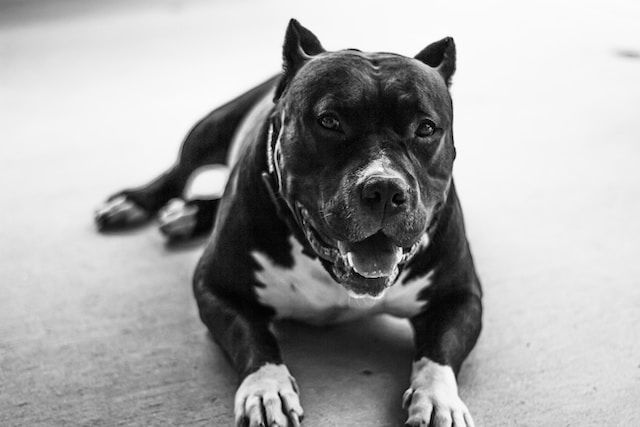
Pitbull owners can support their lovely canines by being responsible and providing everything the dog needs to stay healthy and promote optimal growth.
Pitbull’s Life Expectancy by Breed
The Staffordshire Bull Terrier and the American Staffordshire Terrier have the longest life expectancy among all Pitbulls.
Below is a chart that breaks down the lifespan of Pitbulls by breed:
| Pitbull Breed | Average Lifespan in Years |
| American Pit Bull Terrier | 8 to 15 |
| American Staffordshire Terrier | 12 to 16 |
| Staffordshire Bull Terrier | 12 to 14 |
| American Bully | 8 to 12 |
How Long Do Pitbull Mixes Live?
The average lifespan of Pitbull crossbreeds will vary depending on the specific breed involved in the mix.
On average, Pitbull Mixes are known to live between 10 to 16 years depending on other factors.
By understanding the typical lifespan of Pitbulls and providing them with proper care, nutrition, exercise, and regular veterinary check-ups, you can contribute to increasing their longevity and enjoying many years of companionship with your beloved Pitbull.
Factors Affecting the Longevity of Pitbulls
The following are some of the factors that affect the longevity of Pitbulls:
1. Genetics and Breed Lineage
Genetics is one of the most significant factors that affect how long a Pitbull can live. A sure way to determine this is to look at the dog’s immediate parents and grandparents.
The genetic makeup will certainly affect the health and wellness of your dog. A Pitbull may inherit health issues from their parents, and this would cut short their lifespan if not cared for.
You should always go for dogs that have been selectively bred by responsible breeders.
Selective breeding helps to minimize the occurrence of certain traits and health conditions that may impact the upcoming puppies.
Breeders with ethical practices would always focus on positive attributes such as health, temperament, and longevity.
2. Regular Vet Visits and Wellness Checks
Taking your Pitbull to the vet for checkups and providing medical care will determine how healthy they live.
Pitbulls are vulnerable to certain health problems, especially cardiovascular diseases. Such chronic issues will not produce noticeable symptoms until the condition becomes severe.
Regular vet visits help in the early detection of such conditions, which can then be treated promptly to boost the dog’s recovery.
3. Vaccinations
Vaccination against communicable diseases such as rabies is a sure way of protecting your lovely Pittie from conditions that may shorten their life.
Your vet will provide a vaccination schedule for your Pitbull starting from the puppyhood stage into adulthood.
Pitbull puppies typically receive their first shot at the age of 5 to 7 weeks followed by boosters every 4 weeks for three months.
Adult Pitbulls can have their shots once every year to strengthen their immunity against distemper, parvovirus, hepatitis, and two types of canine cough.
4. Diet and Nutrition
Providing your lovely Pittie with a well-balanced diet is crucial in influencing their average life expectancy.
Make sure your dog’s diet consists of high-quality canine food, with adequate servings of proteins, healthy fats, vitamins, low carbohydrates, and other essential nutrients.
Pitbulls are muscular dogs with high energy levels, so they need a good mix of both commercial and homemade food to support their activities.
The good news is that Pitbulls love to eat human foods such as chicken and beef. They can also eat certain fruits and vegetables in moderation to supply vitamins and minerals.
Avoid sticking to a specific diet for a long time. Adjust the types of food while following advice from your vet regarding nutritional support.
After determining the types of food to give your Pittie, you need to establish a workable feeding schedule with portion control to prevent overfeeding and potential obesity.
5. Exercise
Pitbulls are highly energetic, and regular exercise is essential for maintaining their health and optimizing their lifespan.
Going for daily walks and providing vigorous outdoor activities like jumping, playing fetch, and hiking will boost your Pitbull’s well-being.
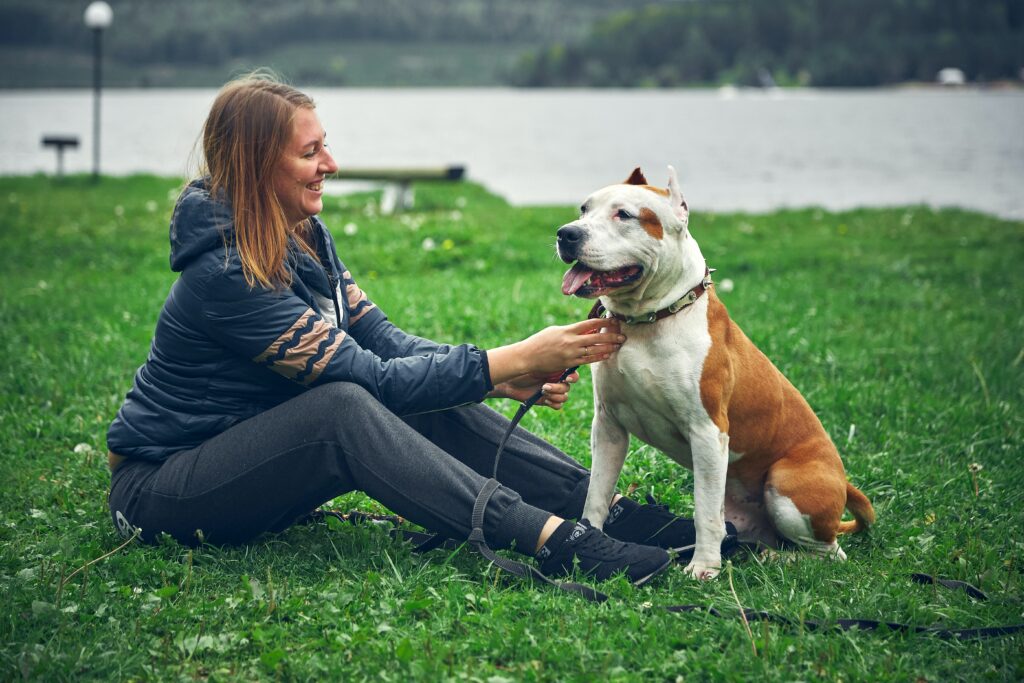
Engaging in physical activities with your Pitbull will also strengthen your bond which is important for boosting their life expectancy.
Other benefits of a regular workout program with your Pitbull include the development of even muscle tone, improved joint health, and supporting a healthy weight.
6. Environment Factors
Where and how you raise your Pitbull will determine how long they will live with you.
Pitbulls have a thin coat with short fur, making them sensitive to harsh weather conditions.
Subjecting your Pittie to extreme outdoor environments can irritate their skin, make them ill, and potentially reduce their lifespan.
Provide your Pitbull with adequate shelter and a comfortable resting place away from harsh weather and hazardous environments.
How To Increase Your Pitbull’s Lifespan
While there are variations among the different Pitbull breeds and their average life expectancy rates, these muscular dogs can benefit from a well-balanced lifestyle.
Genetics is perhaps the only factor that you cannot control to increase the life expectancy of your lovely Pittie.
However, with proper management and care, you can ensure your Pitbull lives with you for a longer time by following these steps:
1. Proper Care and Grooming
Regularly brush your Pitbull’s coat and bathe them to improve cleanliness and hygiene.
Good hygiene can contribute to a long happy life. While grooming your dog, carefully examine their skin to look for any conditions or injuries that need immediate attention.
Don’t forget to brush your Pitbull’s teeth with dog toothpaste and a toothbrush. Some pet parents overlook the importance of their dog’s dental care.
Dirty teeth can lead to the build-up of plaque and tartar which may cause serious periodontal diseases.
2. Weight Management
Obesity is a condition that can lead to various medical problems including cardiovascular diseases and arthritis.
Managing your Pitbull’s weight is crucial to keeping them healthy and reducing the risks associated with obesity.
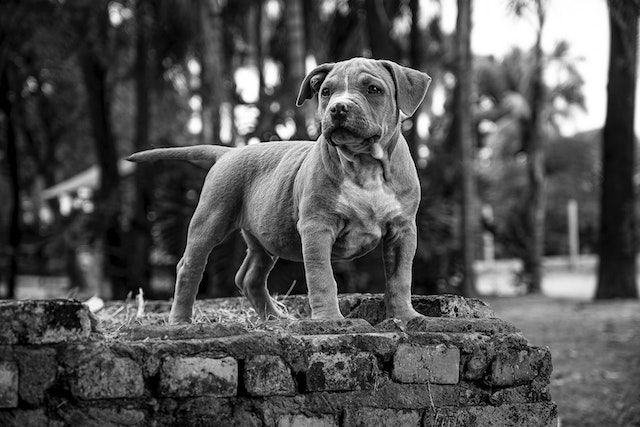
Weight management can be achieved by providing a well-balanced diet with minimal carbohydrates and no fats.
Control your dog’s food intake to manageable portions per day. Avoid snacking your dog throughout the day without monitoring, as it can lead to excessive food intake.
3. Socialization and Interactions
A happy dog is a healthy dog. Make sure to provide plenty of socialization and interactions with your Pitbull to make them feel loved.
Pitbulls love staying close to people, and if we love them back, they experience a sense of satisfaction. Positive interactions with your lovely Pittie can alleviate anxiety and contribute to their overall health and lifespan.
4. Mental Stimulation and Training
Training your Pitbull on behavior and command helps shape responsible behavior. A well-trained dog will not walk into problems and they know how to behave in different situations.
This means that they are less likely to get into life-threatening situations, such as picking up fights with other animals or walking into traffic on a busy highway.
Positive reinforcement techniques are the best when training your Pitbull. Reward good behavior and redirect bad behavior.
Pitbulls are smart dogs, and you can support their brain development by providing mental stimulation.
Providing the dog with puzzle games and interactive toys will help engage their brain and shape their decision-making skills.
Common Health Issues in Pitbulls
Canine diseases are the leading cause of death in Pitbulls and other dog breeds. Some health issues in Pitbulls are heritable while others are acquired due to poor ownership practices.
The following are some of the most common illnesses among Pitbulls:
1. Allergies and Skin Problems
Pitbulls have a single thin coat with short fur exposing their skin to environmental irritants and allergies.
Some of the common allergens in Pitbulls include seasonal pollen, detergents, dust mites, and some types of grasses.
Pitbulls with skin infections will typically scratch or bite their skin uncontrollably, lick on the infected area, and they may show redness or hot spots.
2. Heart Diseases and Cardiovascular Problems
Pitbulls are prone to congenital heart disease, which is a hereditary problem in the breed. Acquired cardiovascular diseases are rare in Pitbulls.
Other common heart conditions include pulmonic stenosis and canine dilated cardiomyopathy.
these chronic illnesses often have no noticeable symptoms until they are advanced, so regular wellness checks are important for early detection.
3. Hip Dysplasia and Joint Issues
Hip dysplasia is a genetically predisposed condition in Pitbulls. This orthopedic condition occurs when the hip joint is poorly developed and can lead to joint laxity or lameness in severe cases.
Pitbulls are large stocky dogs who are prone to put a lot of pressure on their joints. This burden laid on joints might lead to joint pains and arthritis.
Ensure your Pitbull maintains a healthy weight to remove the risks of loading their joints with too much pressure.
4. Cancers and Tumors
Like many other dogs, Pitbulls are also prone to developing cancerous cells either from heredity or acquired factors.
Mast cell tumors can develop on the skin or in lymph nodes, liver, and intestines. Regular check-ups and early detection are vital for effective treatment.
5. Dental Problems
Poor oral hygiene can result in dental problems in Pitbulls. It normally starts with the build-up of plaque (biofilm) and it can later develop into serious dental diseases.
The other common dental issue in Pitbulls is fractured teeth. This will normally affect active Pitties who engage in intensive outdoor activities.
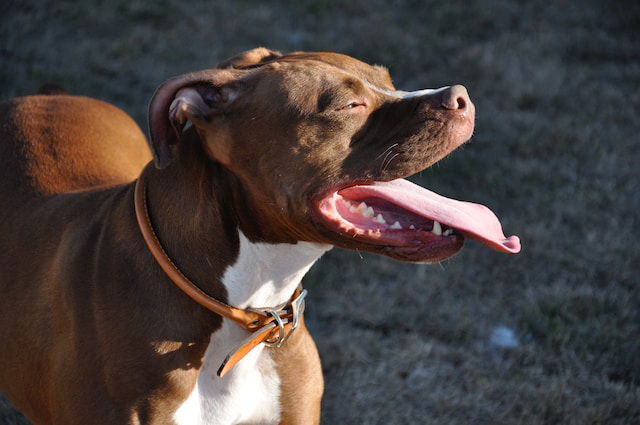
Additionally, some Pitbulls are prone to suffer inflamed gums due to bacterial infections (periodontitis) on the ligaments and tissues that hold teeth. Good dental care, including regular brushing and professional cleaning, is essential.
What Do Pitbulls Usually Die From?
- Sudden death among elderly Pitbulls is common. Often due to organ failure or the inability to keep up with an active lifestyle.
- Surprisingly, a considerable number of Pitbulls die prematurely from road accidents. This should give you an extra reason to always restrict your Pittie with a leash when walking them.
- The other common cause of death is heart disease, which in most cases is a genetic condition in Pitbulls.
- Obesity in Pitbulls contributes to acquired heart conditions, diabetes, liver diseases, and kidney diseases, all of which increase mortality risk.
- Canine cancer, especially mast cell tumors, accounts for multiple deaths among elderly Pitbulls. The sad bit about cancer is that the symptoms may go unnoticed until it is too late.
Frequently Asked Questions
1. How long do blue nose Pitbulls live?
Blue nose Pitbulls which are American Pitbull Terriers, have an average lifespan of 8 to 15 years.
2. How long do red nose Pitbulls live?
Red nose Pitbulls typically have a lifespan of about 10 to 15 years. However, some have been known to live happily with their owners for well over 16 years.
3. What’s the oldest Pitbull on Record
The longest living Pitbull recorded is Max, who lived for 29 years and 283 days. Max was adopted in 1983 and received immense love and care from his family in Louisiana until his passing on May 18, 2013.
4. Are there any specific health conditions I should watch out for in Pitbulls?
Pitbulls are prone to certain health conditions which you need to keep an eye on. These health problems include hip dysplasia, cardiovascular diseases, skin problems, and mast cell tumors.
Taking your Pitbull for wellness checks at the vet is crucial in the early detection and management of these common illnesses.
5. How often should I take my Pitbull to the vet for check-ups?
Many veterinarians recommend taking your Pitbull for a check-up at least twice a year depending on their specific needs. Puppies and Senior Pitbulls may require more frequent visits.
If your Pitbull is undergoing a treatment program, your vet will advise on how frequently you need to visit the clinic.
Regular vet visits enable early detection of any signs of illness, increasing your Pitbull’s chances of a longer life.
Conclusion
A well-raised Pitbull can live for 8 to 16 years on average, depending on various factors. By providing proper care, shelter, nutrition, and healthcare, you can increase the years you spend with your beloved Pittie.
Regular exercise helps maintain a healthy weight, reducing the risks associated with obesity. Educate yourself about common health problems in Pitbulls and take proactive measures to prevent or manage them.
Responsible ownership and regular veterinary care are key to ensuring your Pitbull’s well-being and longevity.
Laura is the founder of Furs'n'Paws. She is a also a pet writer and expert with more than 20 years of experience of working with dogs and cats. She developed a very strong love for animals at a young age. Her passion led her to establish a thriving pet sitting and dog walking business in Dubai. As an expert in pet training, behavior, and nutrition, Laura is committed to helping pet owners and pet lovers by offering high-quality information on a wide range of topics.


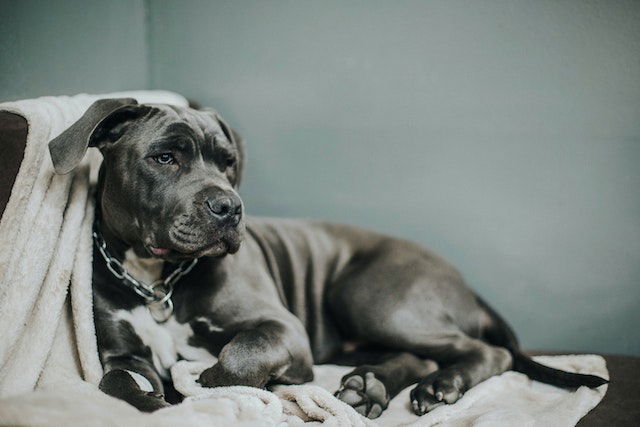
No responses yet